You might not know it, but your skin may be dehydrated. Even if it doesn’t show typical signs of dehydration like dryness or skin flaking, there’s a good chance your skin is not getting enough deeply penetrating moisture.
Together, we’ll talk about what dehydrated skin is and learn the causes and symptoms. We’ll also discuss how to ensure your skin gets the moisture it needs to help it look luminescent and healthy.
What Is Dehydrated Skin?
First things first, there’s a difference between dry skin and dehydrated skin. Dry skin is a skin type similar to oily skin or combination skin. Someone with dry skin has skin that doesn’t produce enough sebum, the skin’s natural oil. On the other hand, dehydrated skin is a skin condition that means your skin lacks water.
As such, it’s completely possible to have dry and dehydrated skin — even oily skin can be dehydrated. A lack of oil and moisture can cause your skin’s sebaceous glands to produce more oil to compensate, resulting in skin that feels oily but is actually dehydrated.
What Are Some Signs of Dehydrated Skin?
It’s not always easy to tell if your skin is dehydrated, but there are a few signs that can save you a trip to the dermatologist. While dryness is a sign of dehydrated skin, it doesn’t always mean your skin is dehydrated. Signs of dehydrated skin can include:
- Itching skin
- Dull complexion
- Uneven skin tone
- Sunken look around the eyes and hollows of the cheeks
- Deeper wrinkles and fine lines that appear more visible
- Dry, flaky skin
While you may also experience some bodily symptoms of dehydration, your skin can be dehydrated for a long time before you notice.
What Causes Dehydrated Skin?
One factor contributing to dehydrated skin is not having enough water. Your skin needs plenty of water to stay hydrated; even if you feel you are drinking water constantly, your skin may need more.
Additional causes that contribute to dehydrated skin include:
- Extremely hot showers
- Cleansing or exfoliating with harsh products
- Air conditioning or heating
- Extreme temperatures
- Water loss, such as sweating
- Too much sun exposure
The Role of the Skin Barrier
Your skin’s barrier, also known as the stratum corneum, is the uppermost layer of your skin. It’s made up of protective cells, fatty acids, ceramides, lipids, and cholesterol. The skin barrier protects the deeper layers of your skin and your entire body from water loss.
Part of keeping your skin barrier healthy is using skincare products that support its function. A healthy skin barrier will naturally help you avoid dehydration and even help balance your skin’s natural moisture levels.
How Can I Hydrate Skin Naturally?
Keeping your skin hydrated is simple once you understand what’s making it lose water and feel dry. Here are five tips to help your skin feel hydrated, moisturized, and comfortable.
1. Drink Your Water
It goes without saying that your skin will pay the price if you aren’t drinking enough water. Aim for at least eight glasses of water per day to keep your skin and body fully hydrated. Remember that fluids other than water can count toward your hydration goal, but some ingredients (like caffeine) can cause you to lose more water than you drink.
You may need more water than the standard guidelines recommend if you sweat a lot through strenuous exercise or live in an incredibly dry area.
2. Use a Humidifier
Your skin can lose more moisture in dry months than humid ones. If you’re experiencing winter dehydration and dryness, consider using a humidifier in your room when you sleep. This can help keep your skin barrier hydrated and support your skin.
3. Cleanse Your Skin Gently
When cleansing your skin, avoid using extremely hot water and harsh soaps. Both of these methods can dry out the skin barrier and strip your skin of its natural moisture. Instead, it’s best practice to use lukewarm water and a gentle cleanser to remove dirt and makeup without removing moisture.
Additionally, it’s best to avoid exfoliating your skin with abrasive ingredients. While it’s important to remove dead skin cells, using a harsh, rough, or grainy material can cause skin irritation and remove vital moisture from your skin.
Furtuna Skin Micellar Cleansing Essence uses olive-infused micelles to gently draw out impurities for a deep-down clean while simultaneously protecting against moisture loss. A blend of wild-foraged plants offers hydrating ingredients to soothe irritated skin and nourish skin deeply. Best of all, it’s perfect for even the most sensitive skin types.
4. Protect Your Skin
Wearing sun protection is important, but the type of sun protection you choose matters. While it’s always important to wear sunscreen (preferably an SPF 30 or higher), you can level up your skin protection by using skincare products that contain antioxidants.
Antioxidants like vitamin C protect against free radicals emitted from the sun and other sources like pollution. This helps your skin resist visible signs of aging and protects against moisture loss.
Furtuna Skin Biphase Moisturizing Oil contains our exclusive Splendore Anchusa® Complex, clinically proven to block free radical damage by 100%. It’s also loaded with moisturizing oils to help protect skin barrier function and hydrate skin.
Deeply penetrating olive leaf water works to increase hydration levels, while olive oil acts as both an emollient and humectant. Emollient ingredients like coconut oil or squalene help strengthen skin by creating an occlusive barrier, while humectants like glycerin or hyaluronic acid help pull water-based nutrients to the skin barrier to keep it hydrated.
5. Reconsider Your Moisturizer
Skin hydration depends on the effectiveness of your skincare routine. Using lotions and serums containing drying ingredients may leave your skin dry and irritated. It’s important that your topical moisturizing cream gives your skin the naturally hydrating and moisturizing ingredients it needs to help it regulate its own moisture levels.
Furtuna Skin Replenishing Balm deeply hydrates and creates a protective barrier on the skin to protect against moisture loss. A blend of natural, potent plant botanicals helps keep skin hydrated, and works to rejuvenate the appearance of skin that has been damaged by dehydration.
Make a Splash With Furtuna Skin
There’s dry skin, and then there’s dehydrated skin. If your skin is showing signs of both dryness and dehydration, it’s time to take action. Drinking more water, protecting against sun exposure and extreme temperatures, and using high-quality skincare can help heal dehydrated and damaged skin.
For ultra-hydrated skin with ingredients found in the land (not the lab), trust Furtuna Skin’s innovative-meets-old-world solutions.
Sources:
ARTICLE: Evolution of Skin Barrier Science for Healthy and Compromised Skin | PubMed
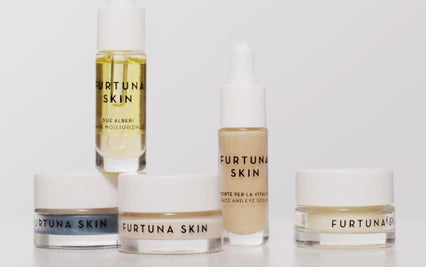
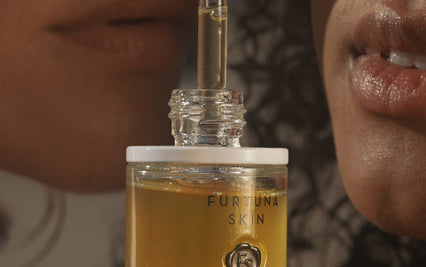
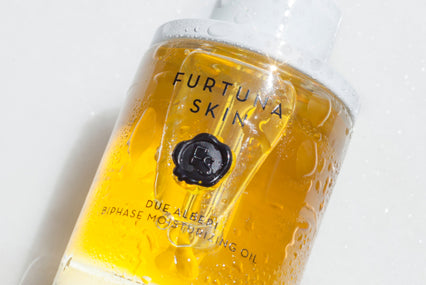
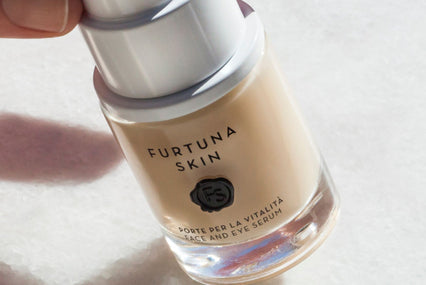
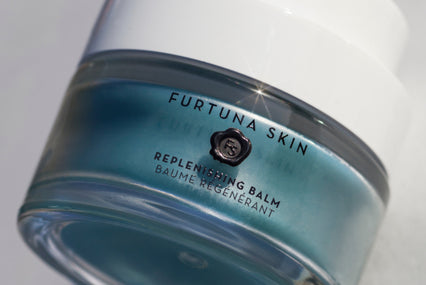
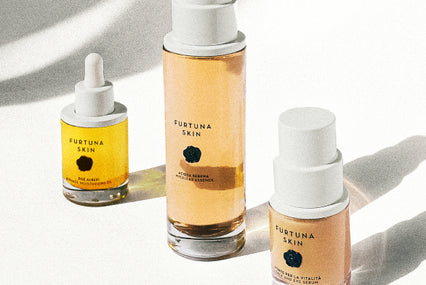
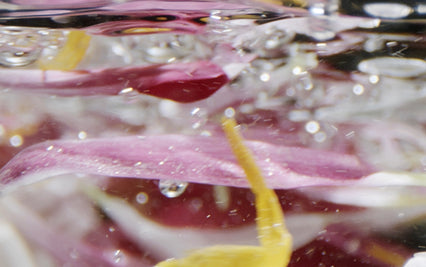





Comment